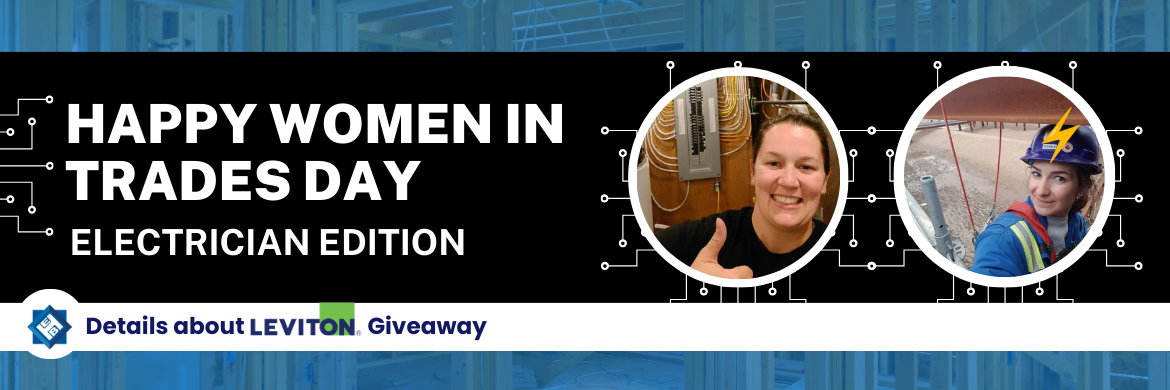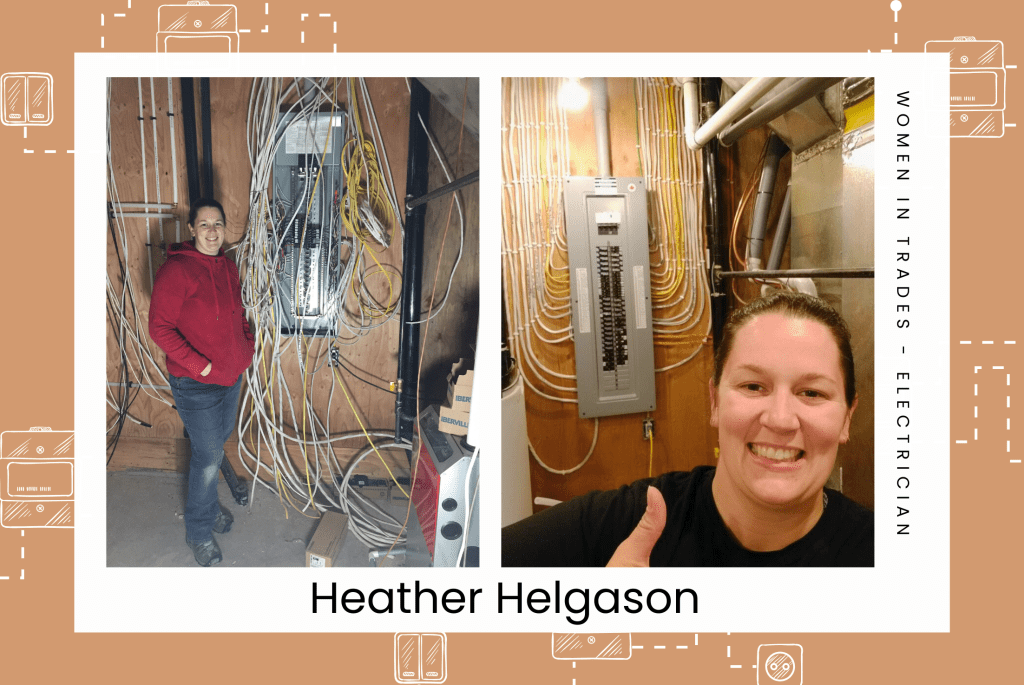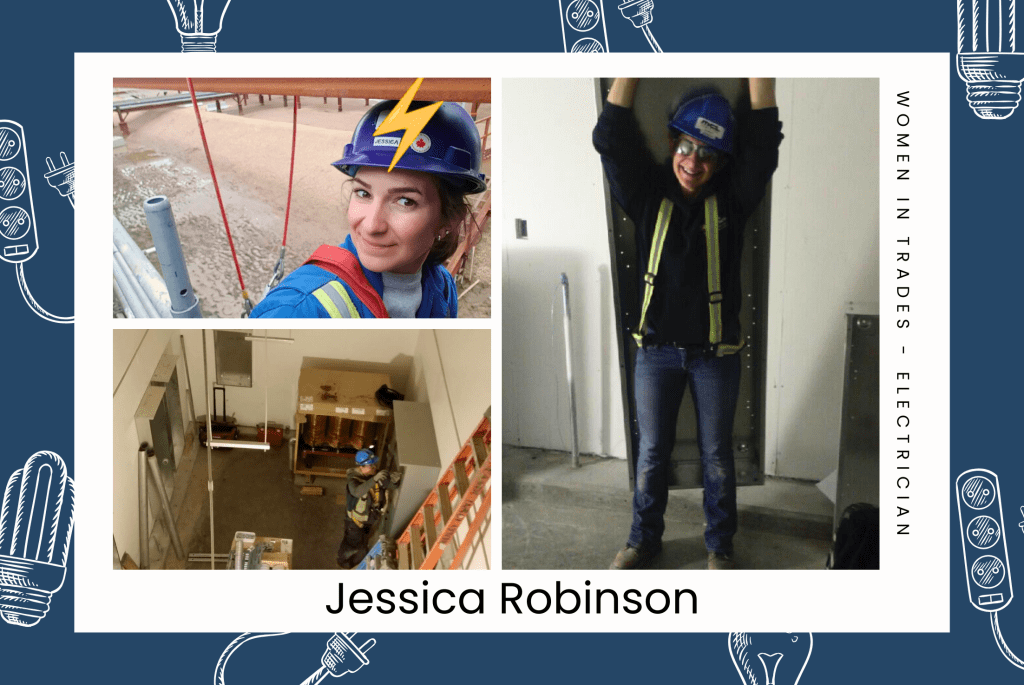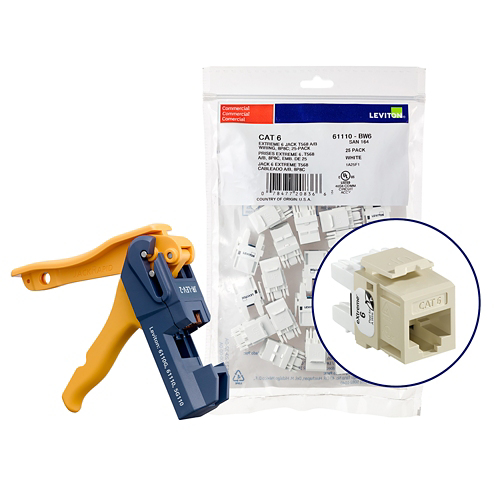Customer Service
June 15, 2024

Today, we highlight the incredible women from EB Horsman who have made their mark in the trades industry as electricians. These women have demonstrated exceptional skill, dedication, and leadership in their field, breaking barriers and inspiring others with their achievements. Their contributions not only showcase their expertise but also serve as a testament to the importance of diversity and inclusivity in traditionally male-dominated sectors.


What initially drew you to pursue a career in the trades industry? (include the trade industry you work/worked in?
After finishing my first year at university, I took a job at an ambulance manufacturing plant in Saskatoon. There, I worked with electronic components, sparking my interest in a potential career in electrical work. I pursued further training at a college in Biggar and secured a position as an electrical apprentice. I was very well received by my fellow students who were all male.
Can you share a bit about your journey and experiences navigating a traditionally male-dominated field?
When I went to homes for electrical work, some male homeowners would meet me at the door and tell me to “go back to the office and find a real electrician.” On the other hand, I’ve had the opposite experience with other male customers who were often curious about how I got into the trade industry. Female customers, in particular, were always delighted to see a woman show up at their door and received me very well.
After my second son was born, I took maternity leave. When I was ready to return to work, my employer wrongfully terminated me, refusing to let me return to my job. I had to fight hard for my rights. Fieldwork as an electrician became impractical for me after having kids since my husband works shifts. With a daycare that had strict hours and required me to pick up my children at a set time, it was difficult to manage the unpredictable schedule of service work as an electrician. As a result, I decided to find a job that would allow me to utilize my electrical experience while offering regular hours. This led me to a career in wholesale electrical sales, which has been a great move. I can apply my expertise and enjoy a stable work schedule.
How did you handle challenges or biases you may encounter as a woman in the trades?
I’ve also faced challenges and biases from colleagues in the trade. When hurtful comments are made, I’ve found it’s often best to just walk away. I’ve always felt the need to work hard to prove myself, and for the most part, this earns respect. However, there will always be people ready to ridicule and put you down, no matter what you do.
What unique perspectives or skills do you believe women bring to the trades industry?
Women are more organized, detail-oriented, and generally maintain cleaner job sites. They also tend to prioritize pleasing the customer and doing the job right, ask for help if needed, and anticipate potential issues. All these attributes make women great in the trade industry.
What advice would you give to other women considering a career in the trades?
My advice to women in the trades is not to let hurtful comments deter you. Brush them off—times are changing, and more people are open to having women in the trades. However, if you face real discrimination, be ready to fight the battle. Sometimes, you must stand up for yourself. Separate unfavorable comments from genuine biases and discrimination.
In your opinion, what steps can companies take to attract and retain more women in trade roles?
When it comes to companies supporting women in the trades, it’s all about family. Flexible work hours are key. Kids get sick, have appointments, and daycare centers have specific pick-up times and sometimes shut down. It’s crucial to have workplace flexibility to accommodate families, and this applies to both men and women. This is something I love about working at E.B. Horsman. Being part of a family-oriented company makes me very happy.


What initially drew you to pursue a career in the trades industry? (include the trade industry you work/worked in?
In junior high and high school, I took both construction and home economics classes, which made me realize how much I enjoyed working in a hands-on environment. When I first decided to get into the trades, I was working three jobs. Then, I heard about a pre-trades course offered at NAIT, which piqued my interest. This course taught us basic trade skills and included shop classes in carpentry and welding. Despite exploring various trades, I knew I wanted to pursue a career in the electrical sector.
I was fortunate that this course assisted with job placements. I started with a residential electrical company, and it was there that I got indentured before moving into the commercial and industrial sectors. I still remember the day I received my Blue Book in the mail; I knew I had embarked on a journey that would transform my life and career for the better.
Can you share a bit about your journey and experiences navigating a traditionally male-dominated field?
When I entered the field, it was still uncommon for women to be working “on the tools.” Being a petite female, I was often perceived as weak and judged as unable to “keep up with the boys.” Even though no one needed to say it aloud, we women are all too familiar with this feeling. When I was placed on crews, it didn’t take long for them to realize that I was fully capable of handling 14-foot wooden ladders on and off the van, lifting heavy spools of wire, properly swinging a hammer, and “man-handling” a hole saw. Eventually, they taught me the techniques and offered their help. I became one of the “boys.”
When I earned my Journeyman Certificate, I had an amazing opportunity to have an “all-ladies crew.” It was with this team of four exceptional female electricians that I knew I had made some sort of difference. It was a powerful way to demonstrate that gender does not determine one’s ability to excel in any profession. This team undoubtedly made a significant impact on me and my journey and hopefully inspired others to pursue their passions regardless of gender stereotypes.
How did you handle challenges or biases you may encounter as a woman in the trades?
Handling challenges like these, among others, stems from being taught certain life skills growing up. Do you need to have thick skin in this trade? Yes, but you also need to be able to handle the hard truths in life in any situation.
Being a woman in this industry has had its extremely hard moments, like feeling that no one understands you and what you’ve been through, all while trying to be tough and not let them see you in these moments. But when they need someone small enough to fit in access hatches or do procedures that others are not physically able to do, and you save the day, let me tell you, when the crew says, “We couldn’t have done it without you, Jess,” it’s all worth it, and it gives me a sense of purpose.
What unique perspectives or skills do you believe women bring to the trades industry?
Women often excel in tasks that require meticulous attention to detail, ensuring high-quality work. We bring strong interpersonal and communication skills because we are natural empaths, which fosters teamwork and collaboration. Women are able to juggle multiple tasks efficiently, which is invaluable in dynamic and fast-paced work environments. Throughout my apprenticeship, I had the privilege of being trained and working side-by-side with very experienced electricians who genuinely cared. These men took the time to teach me, understand me, and get to know me on a personal level, and I will remember them for the rest of my life.
What advice would you give to other women considering a career in the trades?
The trades can be incredibly rewarding both professionally and financially. They are a great career path with numerous opportunities. Nowadays, there are programs aimed at encouraging women to enter the trades, which is particularly important for breaking down barriers and creating more opportunities for everyone.
We, as women in the trades, have a lot to prove and face difficult obstacles daily. Here’s what I’d say:
“At the end of the day, just know deep down that YOU did a hard day of work, and YOU showed up and did it with everything YOU had.” This will help give you peace in knowing anything is possible and that “YOU got this.
In your opinion, what steps can companies take to attract and retain more women in trade roles?
Hire more women to be Subforemen, Superintendents, Project Managers, Estimators, and Project Coordinators. If women see more of this, it has the potential to entice others.
It has gotten better over the years. I always like to take a moment to thank the other tradeswomen who paved the way for me to get here.
We’re excited to announce a special giveaway for women in the trades industry! We’re giving away two 150 EXTREME™ Cat 6 QUICKPORT™ Jacks, Bulk QUICKPACK™ (Ivory), complete with JackRapid™ Tools. Don’t miss your chance to win these top-quality tools! Please enter by July 20th.


Thank you to all the extraordinary women making waves in the trade industries and breaking barriers with their remarkable contributions!






Customer Service
1.888.467.7626